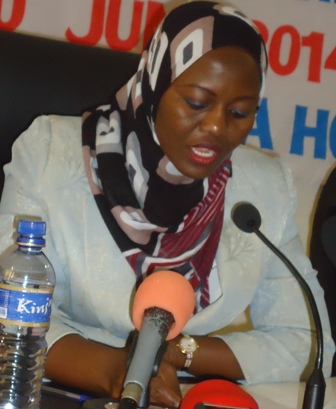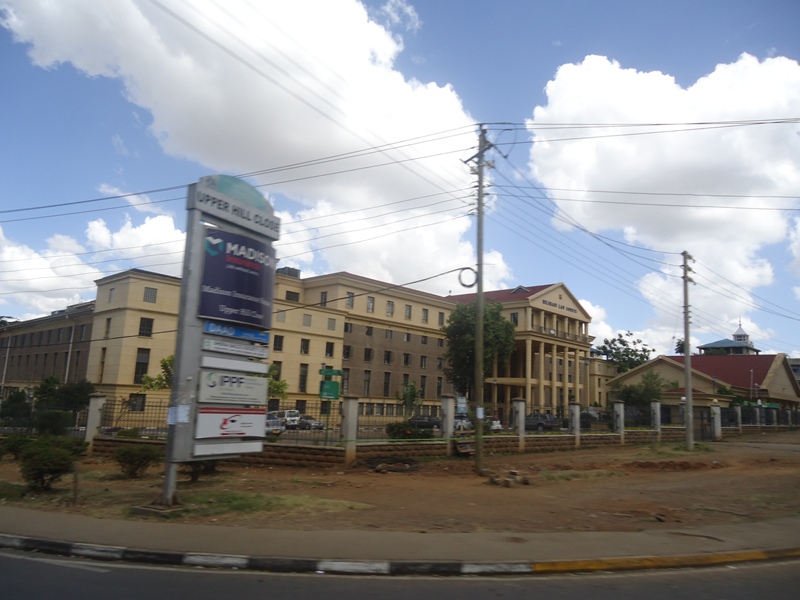By Daisy Nandeche Okoti
Published June 16, 2015
 Ngugi wa Thiong’o, Kenya’s best known literary figure who lives and works in United States of America, is in the country to mark the 50th anniversary of Weep Not, Child, his novel which was published in 1964.
Ngugi wa Thiong’o, Kenya’s best known literary figure who lives and works in United States of America, is in the country to mark the 50th anniversary of Weep Not, Child, his novel which was published in 1964.
In his public lecture that was held in association with the East African Educational Publishers, the publishers of Weep Not, Child at the University of Nairobi on June 11, 2015, wa Thiong’o stressed that class-related issues undermine Kenya’s development.
RELATED: Story Book Captures the Rhythm of Life in Modern Africa
“Eradication of poverty, disease and ignorance during the fight for independence was not supposed to be for a few, or for a particular social class or particular group. It was for all,” Ngugi wa Thiong’o said during the lecture which attracted literary scholars, students, and players in fields such as media, politics and commerce.
“We cannot afford to have a society of ten millionaires standing on the shoulders of ten million beggars,” Ngugi wa Thiong’o said, underlining the importance of equitable distribution and sharing of resources within the country. “You can only measure the progress of a country from the people standing below the mountain.”
Africa’s continuing reliance on Western aid stems from its lack of confidence in its own dreams, Ngugi wa Thiong’o said.

One of the issues that took centre stage during the public lecture was that of language. For Ngugi wa Thiong’o who decided to start writing in his Gikuyu language during his one year imprisonment at Kamiti Maximum Prison in 1977 and whose opinions about language are documented in his book, Decolonising the Mind: the Politics of Language in African Literature that was published in 1986, language is a very central and important aspect for a colonized people because it is a tool for self-definition. There are concepts that can only be grasped fully in the language of their origination and therefore, someone who understands the language of their culture is better placed at expressing their ideas, identities and imaginations than someone who does not understand the culture of the community in which they live.
RELATED: Kenya Wrestles with Non-Existent Reading-For-Leisure Culture
“The use of bad English to shame individuals in our comedy rather than shaming what really the problem is marked the beginning of putting English above us,” wa Thiong’o said, insisting that if these comedies shamed bad governance, for example, rather than erroneous pronunciation, there would have been a better contribution to the betterment of the society.
Another issue that dominated the 3.00PM-5.00 PM lecture is the lack of confidence in our cultures and the blind aspiration towards whiteness by many Africans.
 “The negation of a national initiative in favour of one from the West, for example, is a mark of the brainwashing process among Africans,” he said to aspiring artists and other creatives urging them to start home by first embracing their native languages as that plays a very key role in an individual’s cognitive process. “It is important to start home. International recognition is rooted in your knowledge of Kenya.”
“The negation of a national initiative in favour of one from the West, for example, is a mark of the brainwashing process among Africans,” he said to aspiring artists and other creatives urging them to start home by first embracing their native languages as that plays a very key role in an individual’s cognitive process. “It is important to start home. International recognition is rooted in your knowledge of Kenya.”
The Professor of English and Comparative Literature at the University of California called upon African governments to play an active role in the reassurance process of its citizens by first believing in the abilities of the people and actively supporting them by providing appropriate training and financial aid where possible and in that way, Africans will start to develop themselves and create opportunities.
RELATED: Children’s Literature Prize to be Presented on June 1, 2015
Ngugi wa Thiong’o said his life had come full circle since 1977 when Kenya’s first president, Jomo Kenyatta, sent him to life imprisonment following the publication of his fourth novel, Petals of Blood, which rubbed the powers that be the wrong way. Kenyatta’s successor, Daniel arap Moi, is said to have forced wa Thiong’o into exile by refusing to give him his job after imprisonment. In 2015, Uhuru Kenyatta, Jomo Kenyatta’s son and the fourth President of Kenya, welcomed Ngugi wa Thiong’o to the country’s seat of power, State House, in Nairobi.
Four days before his public lecture, President Uhuru Kenyatta had received Prof Ngugi wa Thiong’o at State House in Nairobi. Wa Thiong’o had used the occasion to call upon Kenyans to unite in building a stronger nation.
“Draw from all the cultures of Kenya to build a leading nation. Nothing stops Kenya from being the leading nation in the world,” the Distinguished Professor of Comparative Literature and English at University of California, USA, said. He urged President Kenyatta to promote local languages.




